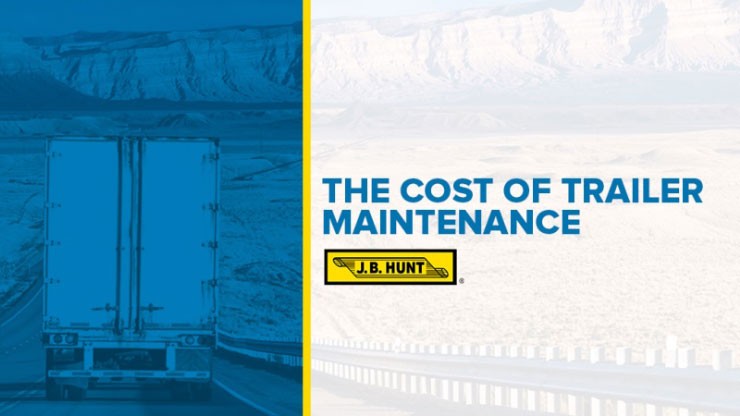Reducing Maintenance Costs with Power Only Freight

How can trucking companies save money on expenses? If you’re the owner of a small carrier business, you’ve likely asked yourself that question more than once. According to the American Transportation Research Institute, average truck/trailer repair and maintenance costs totaled 16.6 cents per mile in 2016. While tactics such as regular inspections, teaching efficient driving techniques, and ensuring proper tire rotation are effective, such practices only scratch the surface on potential cost reduction. Businesses that look beyond the vehicle will find even more ways to save. Trailer upkeep can greatly increase overall maintenance costs, especially over time. That’s why some carriers turn to power-only freight in lieu of operating their own trailer. With power-only freight, the carrier provides the truck while a third-party company supplies the trailer. Let’s take a closer look at some of the expenses associated with trailer maintenance.
Maintenance and Repairs to Consider
Although costs and pricing vary based on a number of factors, the cost per mile for each trailing unit can take a lot out of a business’ potential revenue. For a 53’ dry van, tires alone can easily exceed $250 per month.* Assuming the life of a tire is 50,000 miles, a carrier would need to invest in more than two sets of tires per year for each continually used trailer in its fleet.* In addition to tire costs, there are many component parts that must be in good condition to ensure optimal performance. Costs for these items stack up quickly and improper maintenance can lower fuel economy, further increasing expenses. Component parts typically include, but are not limited to:
- Brakes
- Doors
- Lighting
- Wheel end assembly
- Mud flaps
- Tandems
- Dolly legs
- Side panel
Another major factor for trailer costs is the age of the equipment. Older trailers can easily cost more to maintain than modern ones, and while newer dry van trailers are often designed to be more efficient and durable their upkeep can still impact revenue. With the great number of factors to consider, carriers may enjoy more profits – and peace of mind – with power-only freight. Whether you’re looking to eliminate the cost of trailer maintenance or simply don’t own or lease a trailer, take advantage of power-only loads. Look for a service provider with a broad selection of consistent freight, and your business could reduce costs significantly.
J.B. Hunt Power Capacity Solutions (PCS)
At J.B. Hunt, our PCS division is committed to power-only carriers from the start. Getting started is simple and, once approved, carriers gain access to a dedicated Capacity Coordinator who keeps the carrier’s preferences in mind when recommending loads. The average age of J.B. Hunt trailers is less than three years, helping to ensure a quality experience for PCS carriers. In addition, the majority of power-only loads with J.B. Hunt are drop-trailer shipments, further increasing the efficiency of pickups and drop-offs. Through close communication, the J.B. Hunt Power Capacity Solutions (PCS) division finds consistent freight for carriers in regions throughout the U.S. Get started with J.B. Hunt PCS today by entering your business’s information here or by emailing pcs_carriers@jbhunt.com. * Based on data provided by J.B. Hunt’s Maintenance department.

